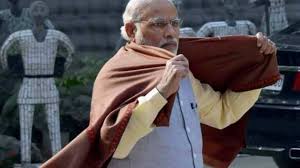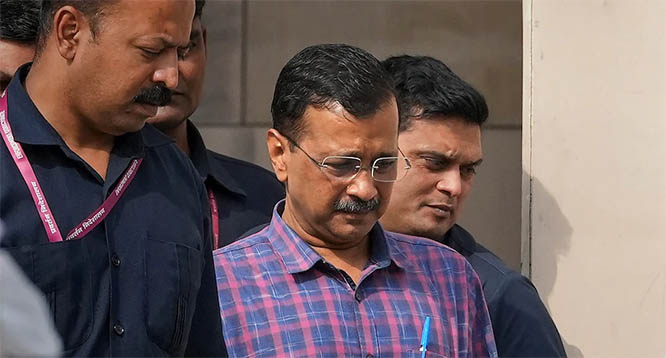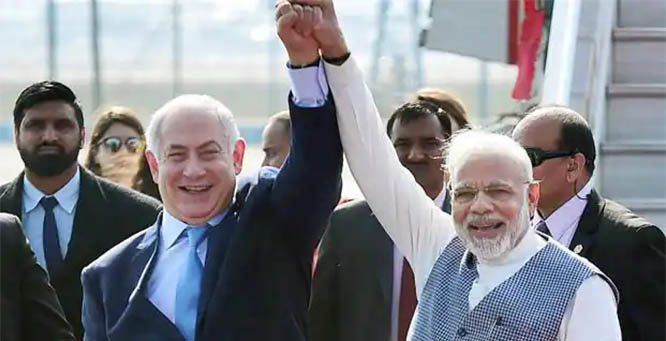New Delhi, Jan 7: Playing the pro-poor card, Prime Minister Narendra Modi today said they are the focus of his government and projected demonetisation as a long-term tool to fight black money and corruption to improve their lives.

Modi again pitched for electoral reforms and sought a consensus among political parties, asserting that BJP will play a lead role in making political funding transparent as demonetisation and digital economy have ushered in a more transparent era.
"BJP will be at the forefront of pushing transparency in political funding. People have a right to know where our funds are coming from," he said. With opposition parties levelling corruption charges at BJP leadership following the note ban, he asked party leaders to welcome criticism but they should remain unfazed by accusations even as he underlined his humble origins and had lived poverty.
Referring to coming assembly elections in five states, including the crucial Uttar Pradesh polls, Modi expressed confidence that the party will win there. He referred to the impressive Lucknow rally he had addressed a few days ago and his interactions with workers in his constituency Varanasi to make the point. The prime minister asked worked to focus effectively on booths, saying the more they work there the more fruits the party will harvest. "The situation is in our favour in the elections," he said.
It was the poor and his government to empower them which was the central theme of his 50-minute long speech. "The poor of our poor country have accepted this historic decision (demonetisation). They have accepted that it is an effective step to end social ills including corruption. "Accepting the hardships which came with the decision, they have welcome this historic step toward a great change," Modi said, adding that the country has seen society's strength in the last two months.
Some people were concerned about improvement in their life style but priority of our government was to change the quality of the life of the poor, Modi said. Briefing the reporters, Union Minister Ravi Shankar Prasad said the Prime Minister asserted that the poor and poverty are not a tool for winning elections BJP and that it does not look at them through vote-bank glasses.
Modi cited a string of government's measures, including Jan Dhan accounts, Beti Bachao Beti Padhao, Swachh Bharat, and said the poor have inner strength to overcome poverty and his government has been working to empower them. Sources said he also asked party leaders to not seek poll tickets for their kin, saying organisation will take care of the exercise
Exhorting workers to win over the poor, Modi said BJP is blessed with lakhs of selfless functionaries connected to the ground and said they are not swayed by wind but are capable of changing its direction.
Apparently responding to criticism that cash did not have a big share of black money, he said it was the source of all forms, like benami assets and gold, of black money.
He invoked the party's ideologue Deen Dayal Upadhyay, whose birth centenary is being celebrated by the government and the organisation, and said his government's works are in line with his 'garib kalyan' agenda.
The party's responsibility has increased following public support to demonetisation, he said. Ravi Shankar Prasad said BJP will hold its next National Executive meeting on April 15-16.
The Union Minister also said he felt few addresses at the national executive meetings have been as impressive as the Modi's today and that many leaders shared his feelings.
The party Good Governance department headed by Vinay Sahasrabuddhe gave a comparative presentation on state governments to claim that BJP-run states were more efficient.
Madhya Pradesh Chief Minister Shivraj Singh Chouhan gave a presentation on his government's efforts to double farmers' income while Union Minister Piyush Goyal spoke about digital economy.
On concerns that the trading community, a traditional BJP vote bank, has been hit hard by demonetisation, party leadership said the exercise has also succeeded in attracting new voters, sources said.








Comments
Add new comment